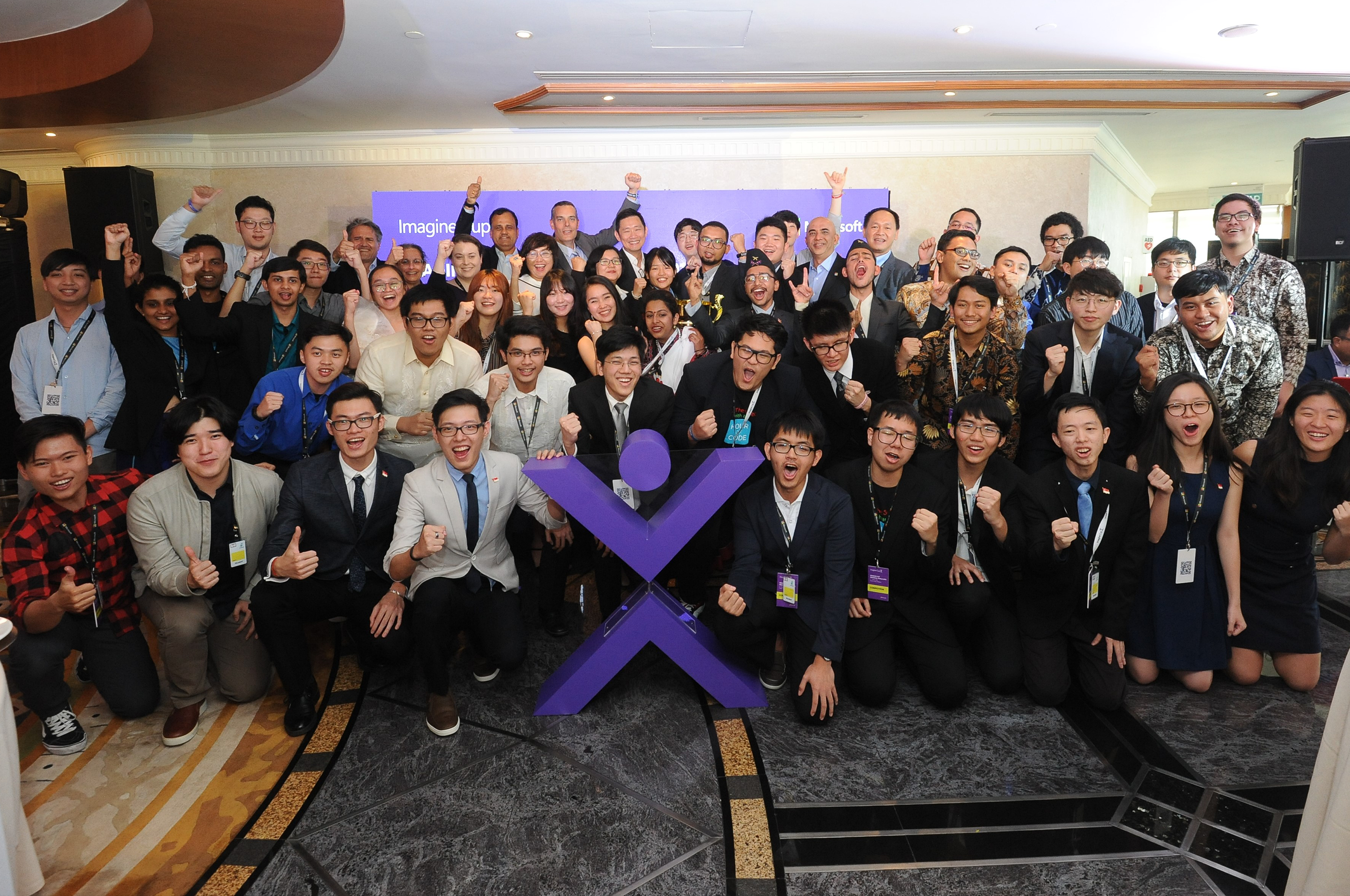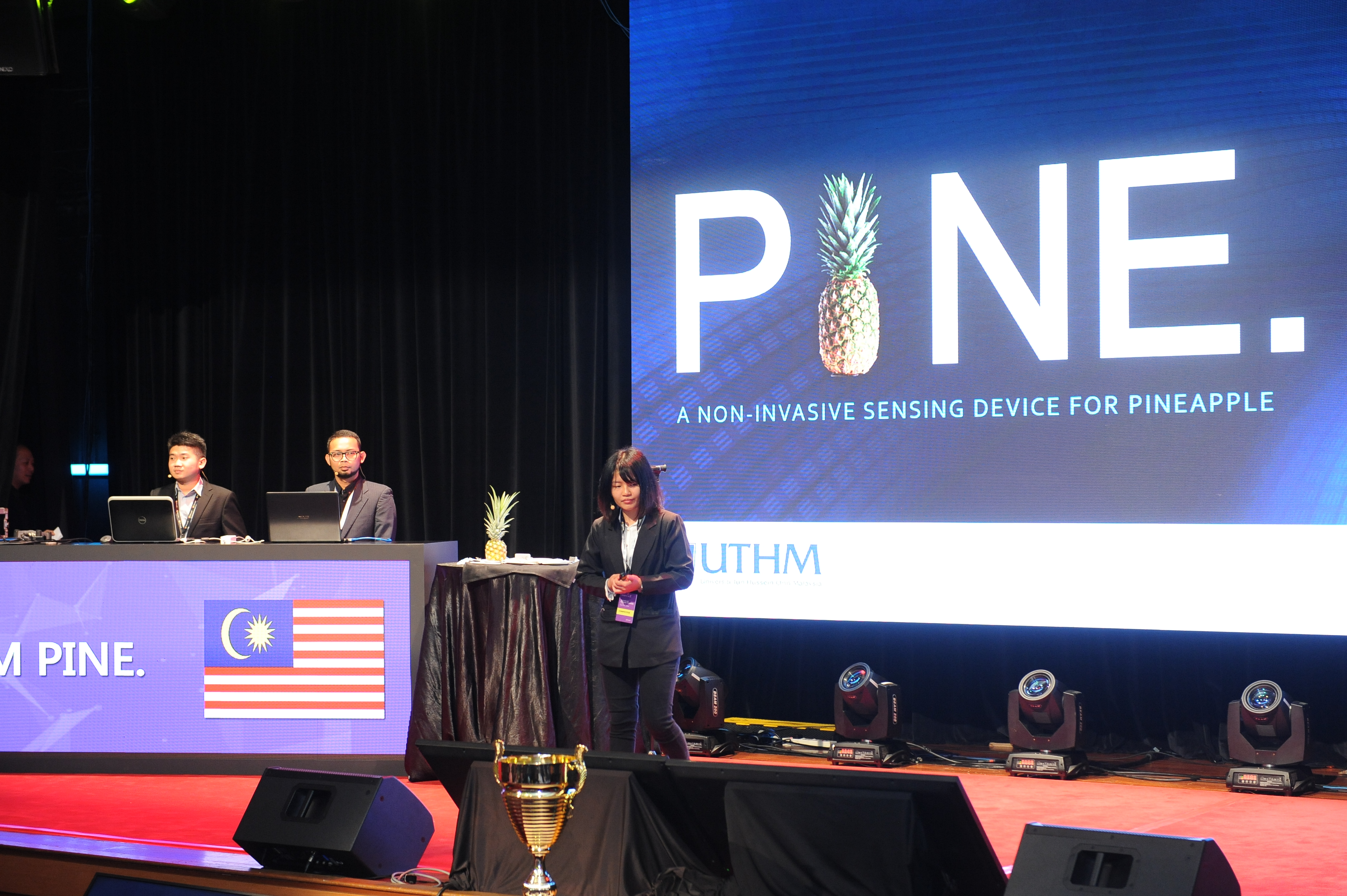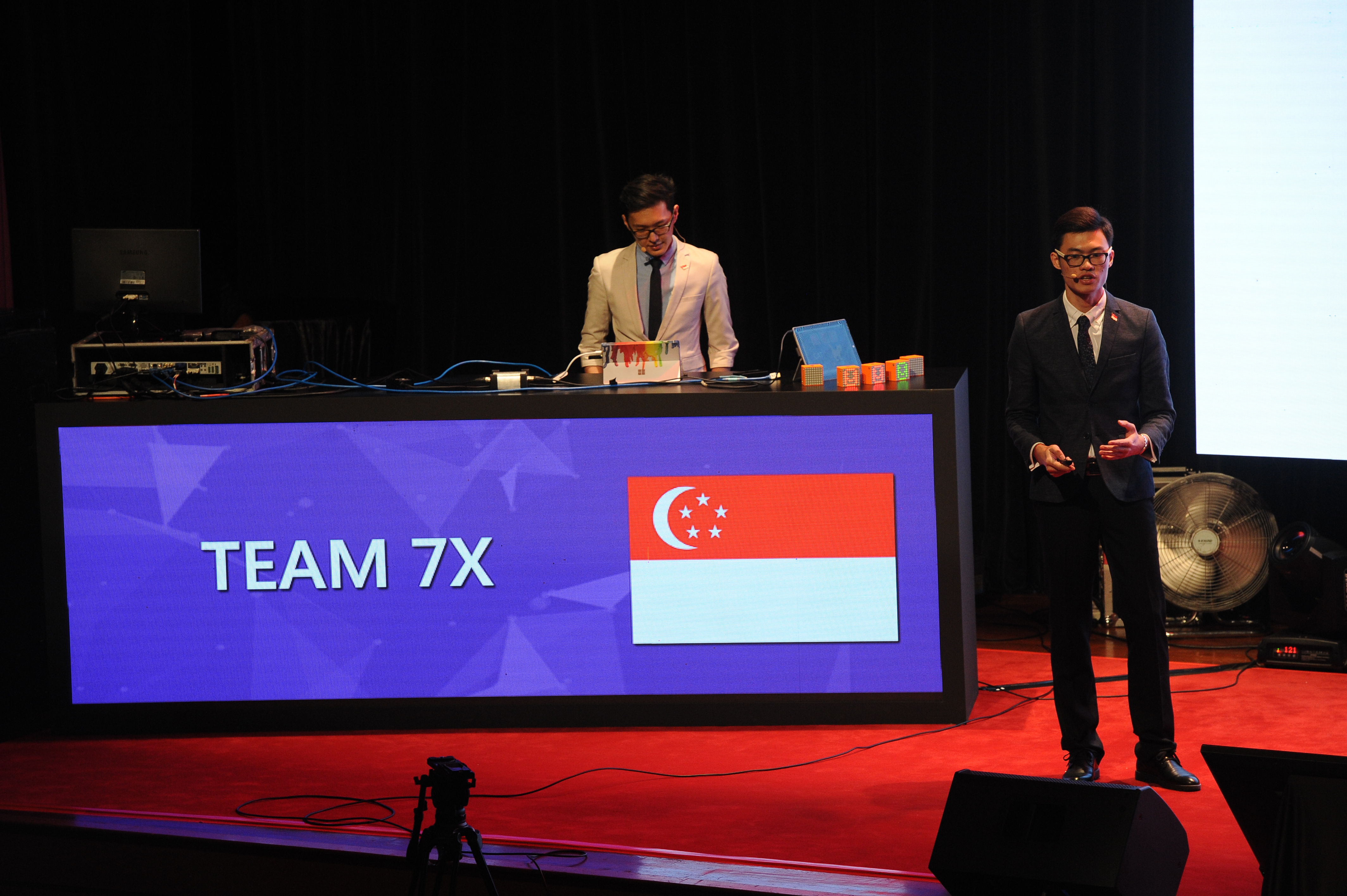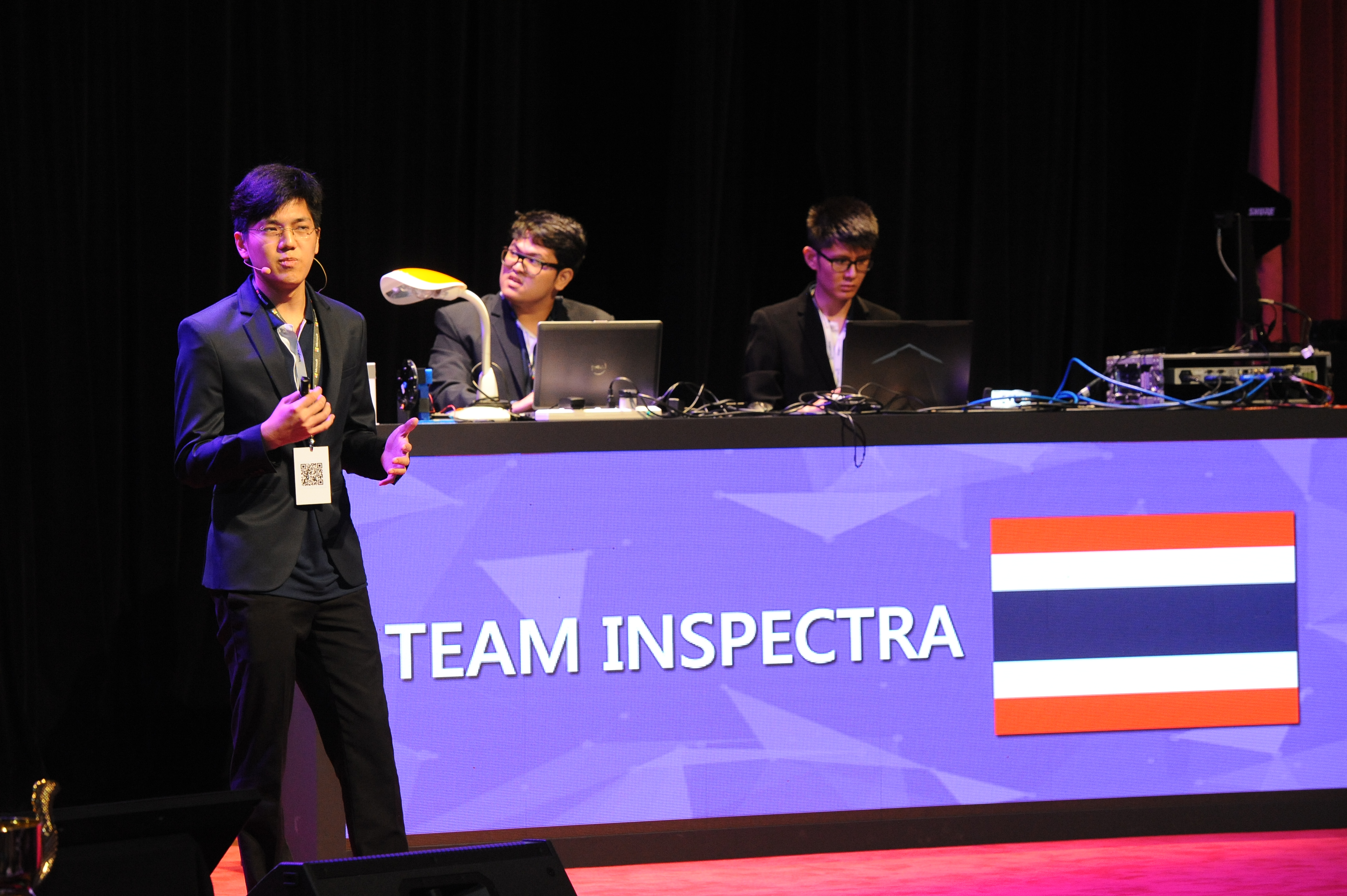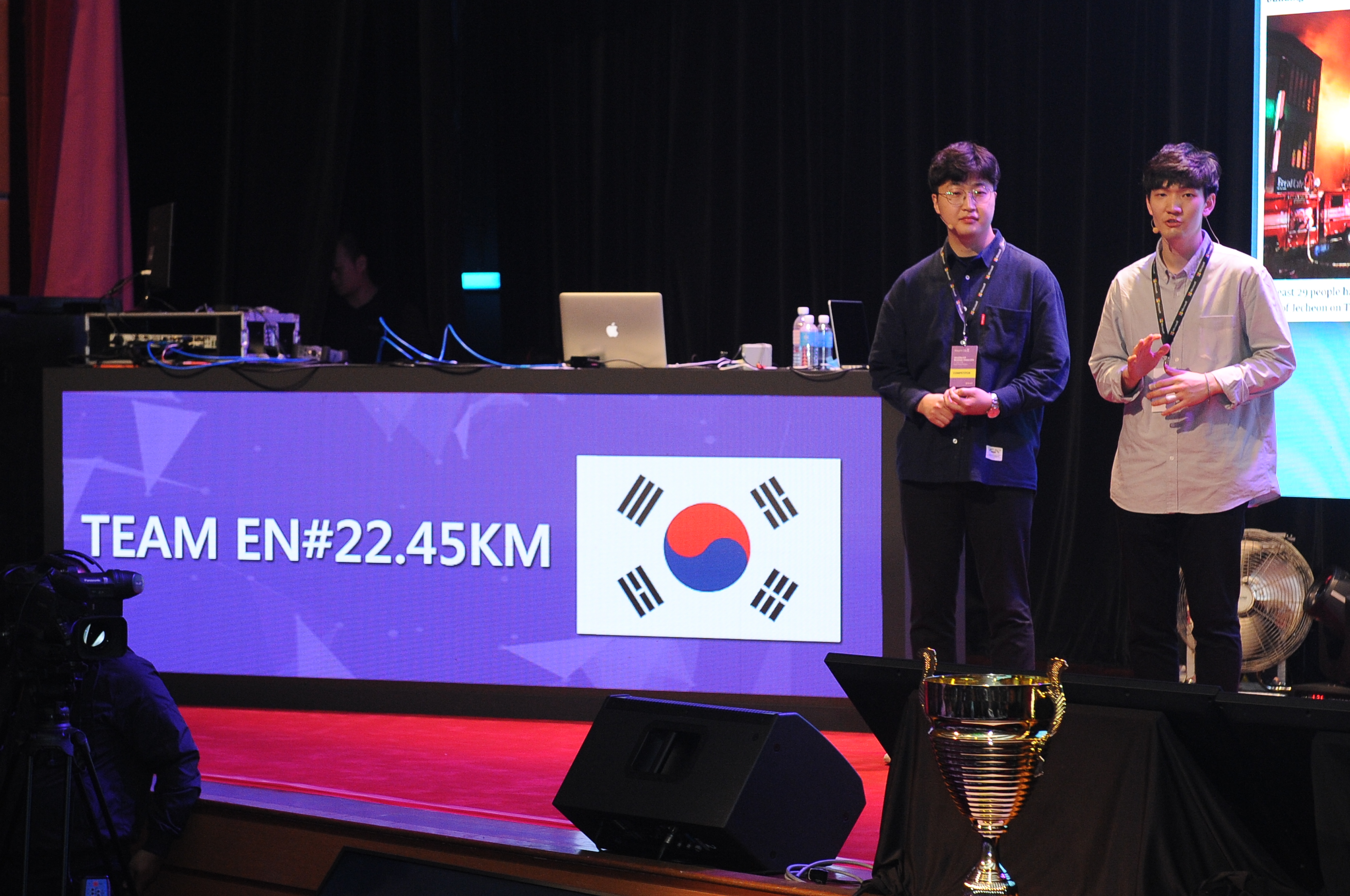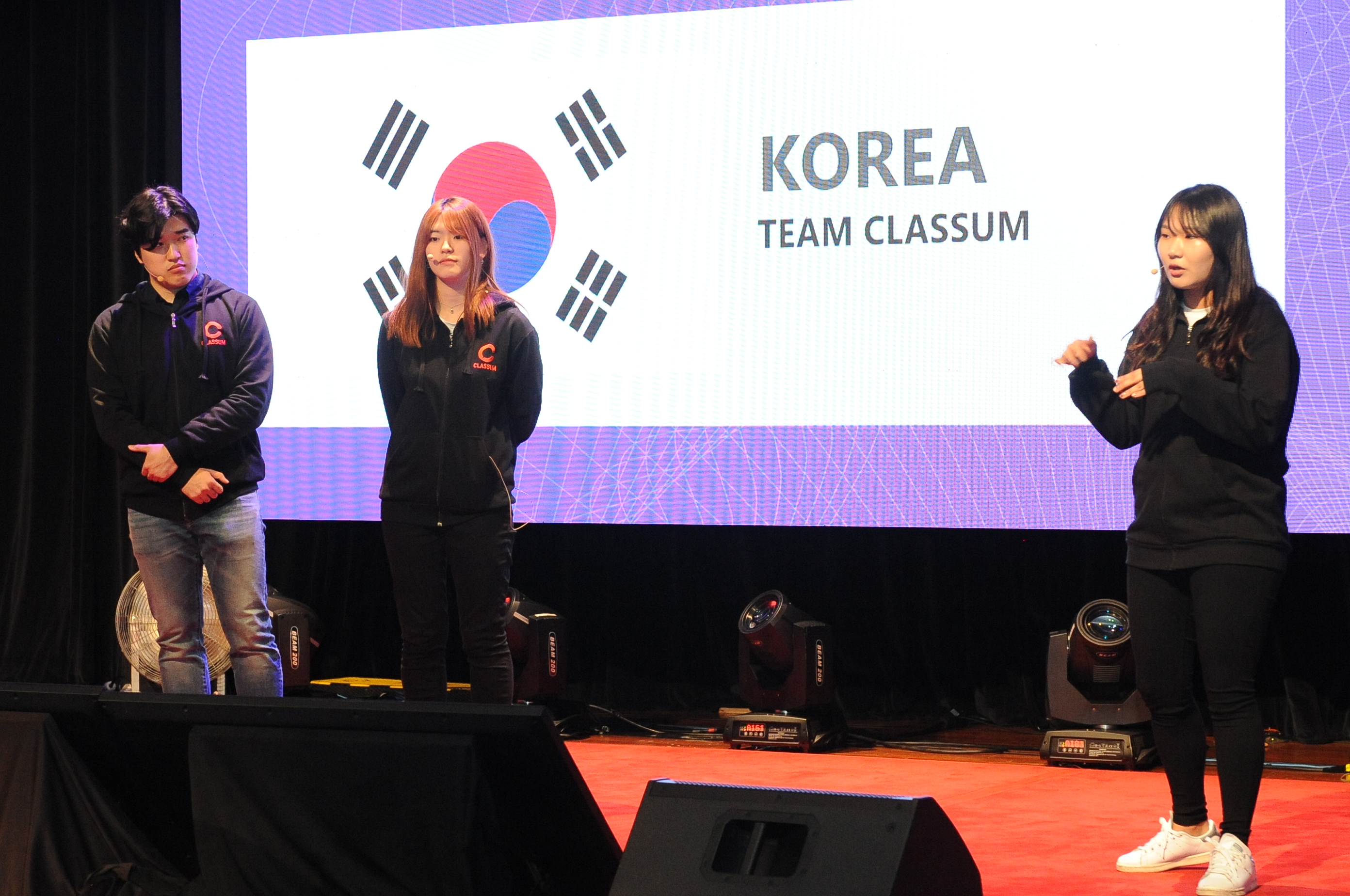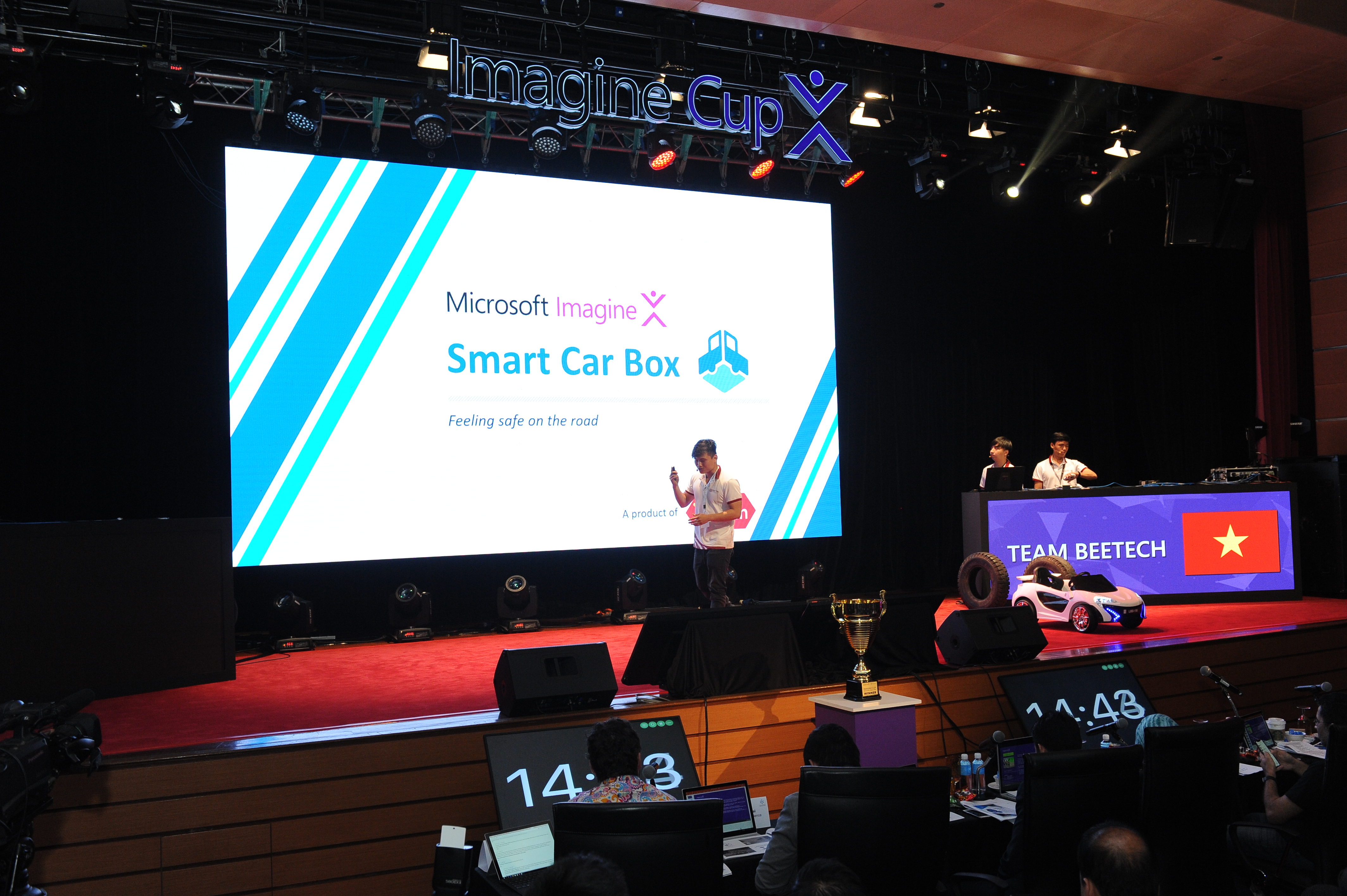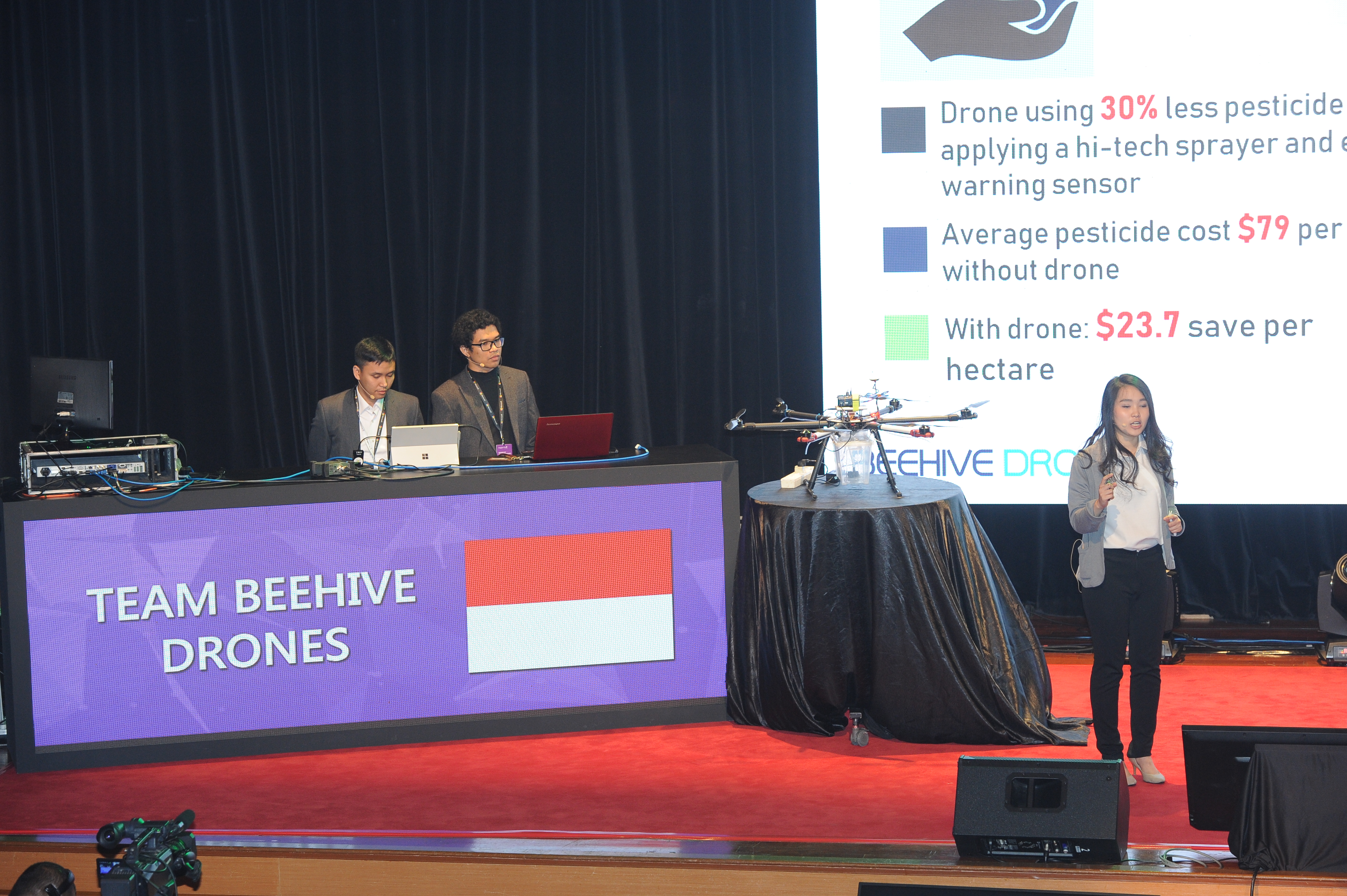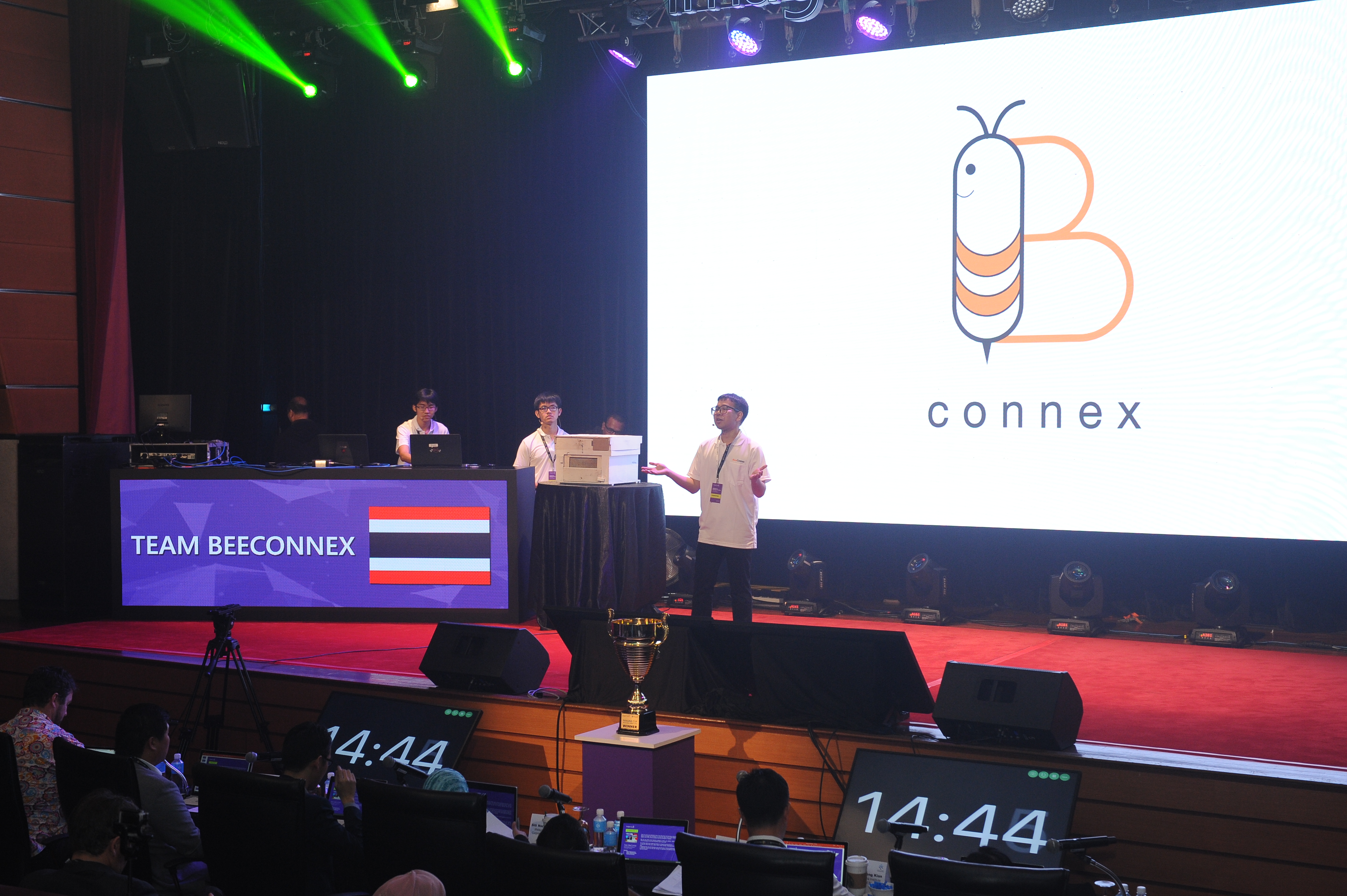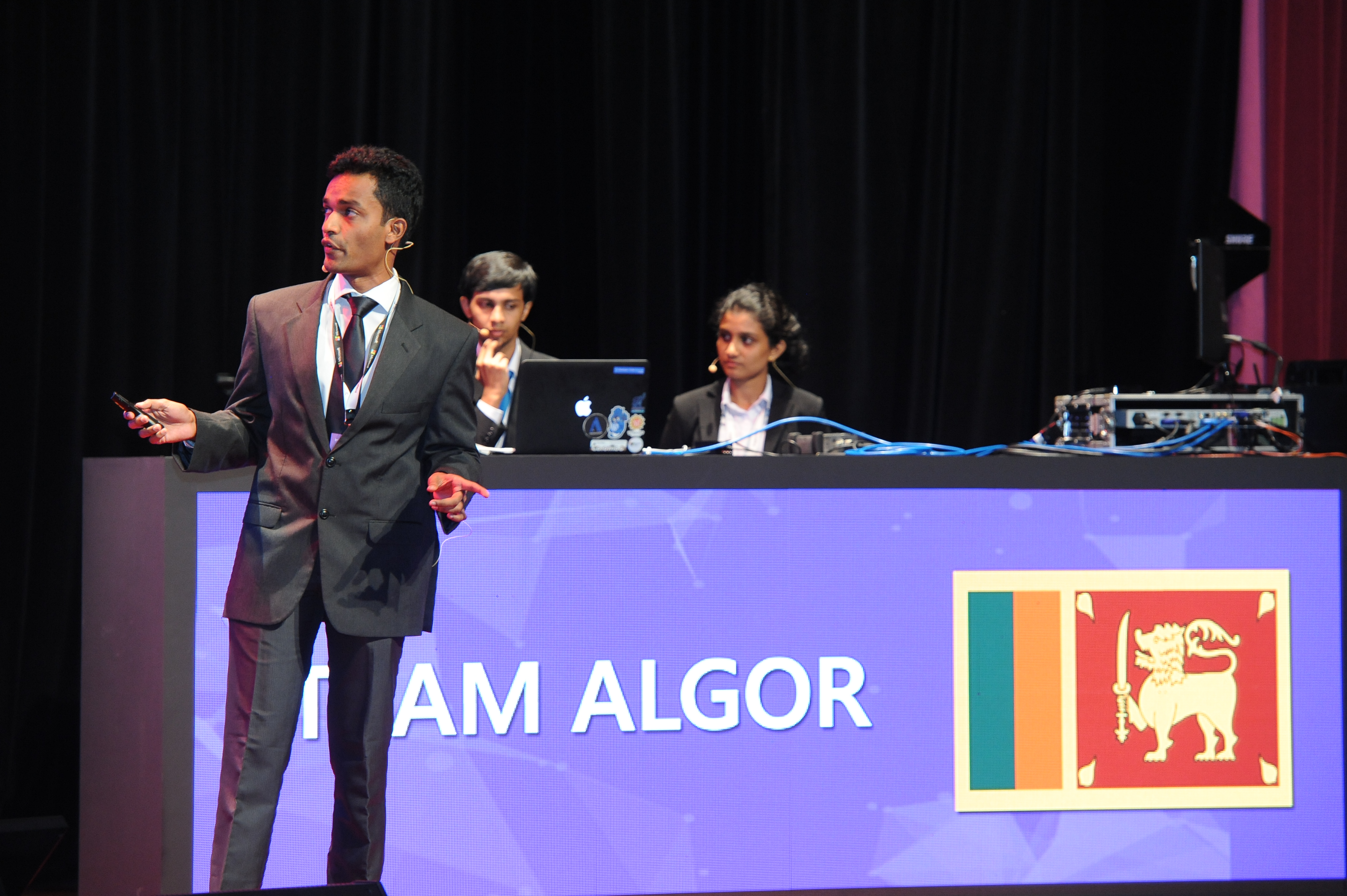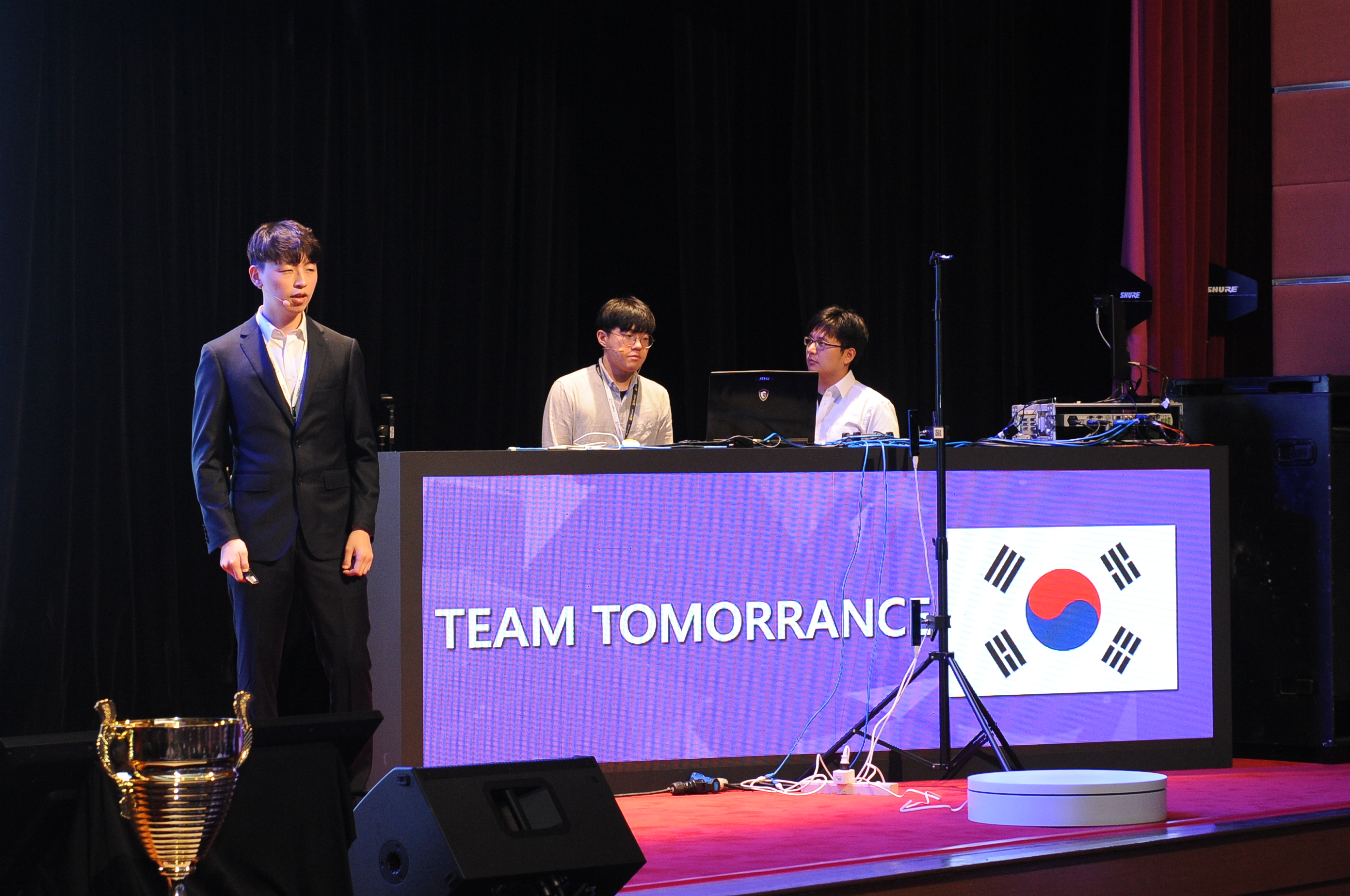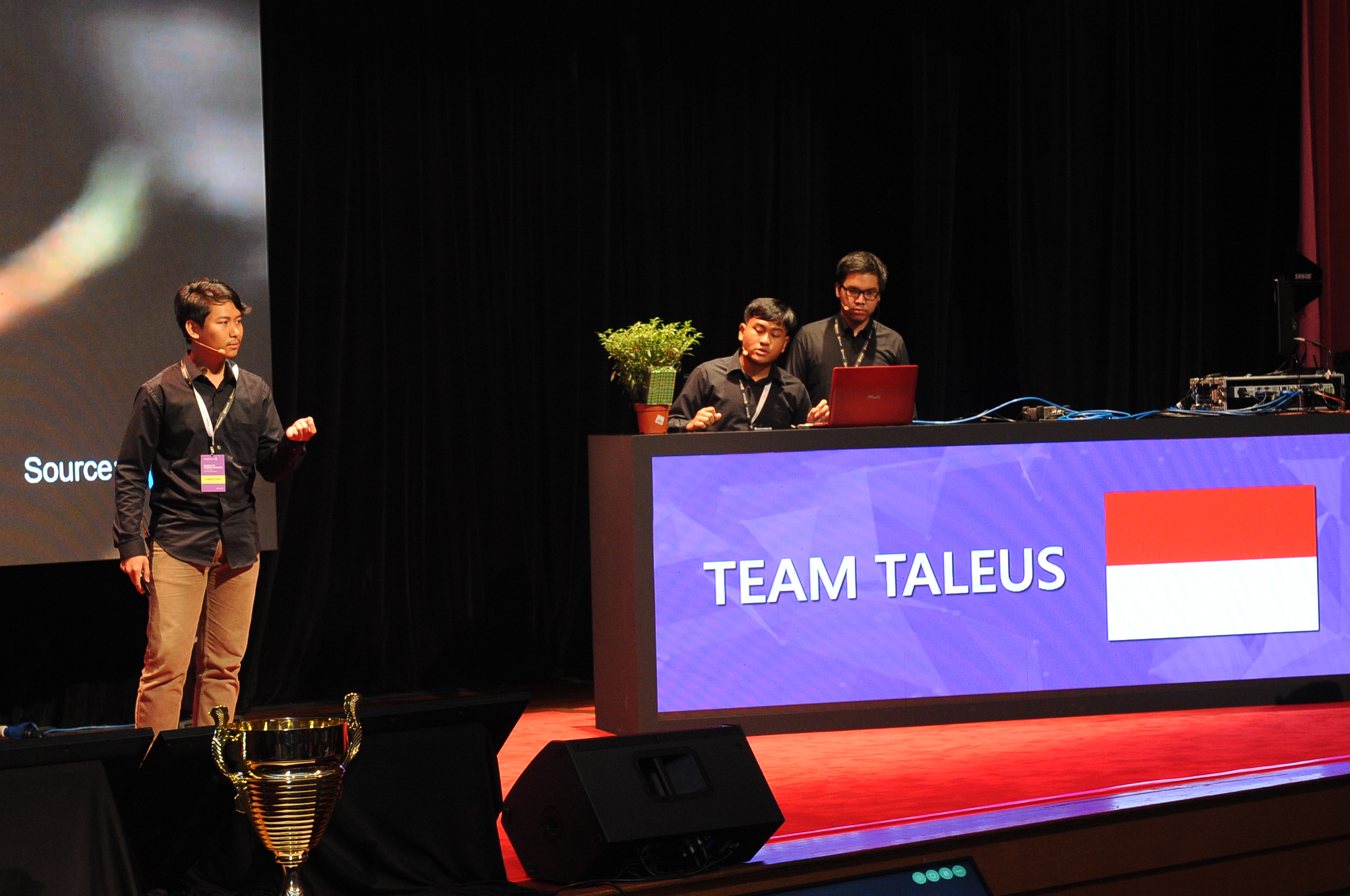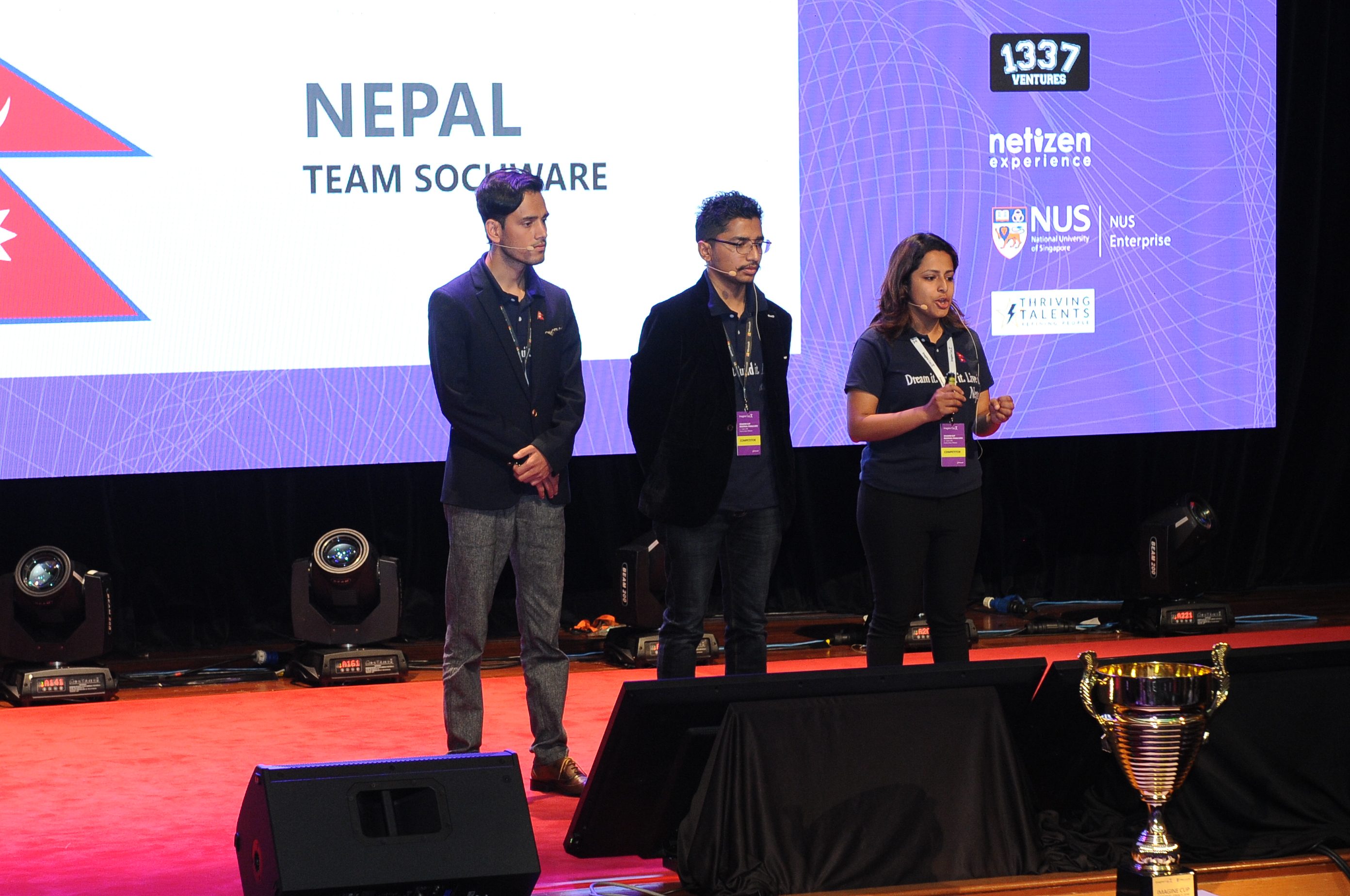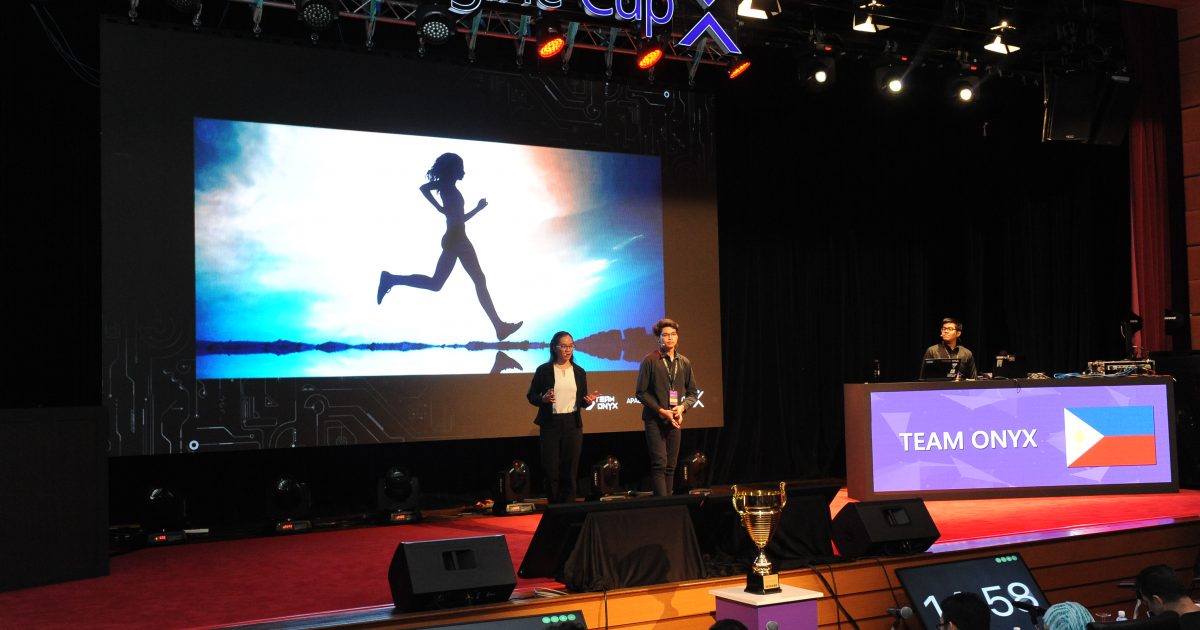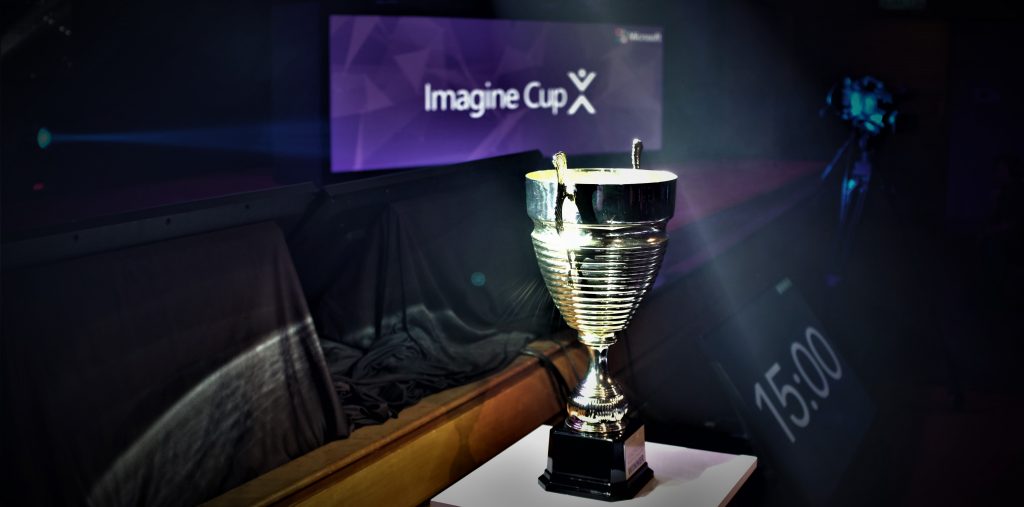
APAC Imagine Cup: From students to developers to entrepreneurs
Music blares out across the auditorium. The light show is dazzling. The master of ceremonies pumps up the crowd to cheer louder. A massive silver trophy gleams in a spotlight in front of a row judges who sit back as the contest begins on stage.
Necessity may be the mother of invention. But inspiration, altruism, business savvy, and a dash of spectacle are also in the DNA of the Imagine Cup – an unrivaled technology tournament which brings together student developers from across the world. Many try to solve some of society’s toughest problems by creatively applying the latest in artificial intelligence (AI), machine learning (ML), the internet of things (IoT), cloud computing, and blockchain.
It’s prestigious, innovative, entrepreneurial and – at times – dramatic. Most importantly, it is impactful. Since it started 16 years ago, more than 2 million students from around 190 countries have taken part, including 385,000 from the Asia Pacific (APAC).
Over the coming weeks, hundreds of teams from universities and colleges across the globe will vie to represent their regions at the July world finals at Microsoft’s Redmond headquarters in the United States.
The latest to book their flights were the members of seven teams from the APAC who came through a closely fought 15-team regional final held in the Malaysian capital, Kuala Lumpur this month. Together, they represent an impressive set of Millennials.
ALSO READ: Meet the Imagine Cup 2018 Asia Pacific regional finalists
At that event, each team went on stage and articulately pitched a technology solution they had spent months conceiving, researching, developing, and trialing.

The array of challenges each chose to tackle was as eclectic: ranging from detecting hazardous gas leaks in factories, to using drones to fertilize and monitor crops on small family farms, to a simple-to-use smartphone app that can help diagnose the early signs of chronic diseases; to rigging up hives with IoT sensors to help save honey bees; to using AI to make responses from emergency calls faster and more effective. Modern world issues were also targeted from obesity to leasing real estate to predictive maintenance for cars.
The reasons why they chose to focus on particular problems were also often inspiring, and sometimes personal. For instance, Team HealthSight, Malaysia, created a system to monitor the elderly in institutional care against falls and accidents. Why? Because one of their grandmothers once spent many hours on the floor of her room in an old person’s home unnoticed by overworked nursing staff.
ALSO READ: Malaysian students announced as winner of Microsoft Imagine Cup Asia Pacific Finals
Team 7x from Singapore created an interactive cube game to help young children overcome dyslexia. Why? Because one team member never forgot how his childhood friend used to be bullied because he had that condition.
Sri Lanka’s Team Algo chose to use predictive analytics to help small farmers in their country make better market choices over what crop to plant in any given season. Why? Because they know many families in their island country still rely on cropping for their livelihoods and are often the victims of overproduction and price falls.
And, Indonesia’s Team Taleus developed an AI-powered chatbot to help diagnose and remedy plant diseases. In the process, they have forged strong relationships with dozens of farmers who scrape out a living by working small plots near and around their campus in the city of Bandung.
In the end, Malaysia’s Team Pine was declared the Imagine Cup APAC champion. They believe they can revolutionize the country’s massive pineapple exporting industry and save millions of dollars every year by eliminating wastage of fruit. They have developed a sensing device so farmers can evaluate optimal levels of ripeness in a non-intrusive manner, before harvesting. That would mean only sweet fruit gets shipped.
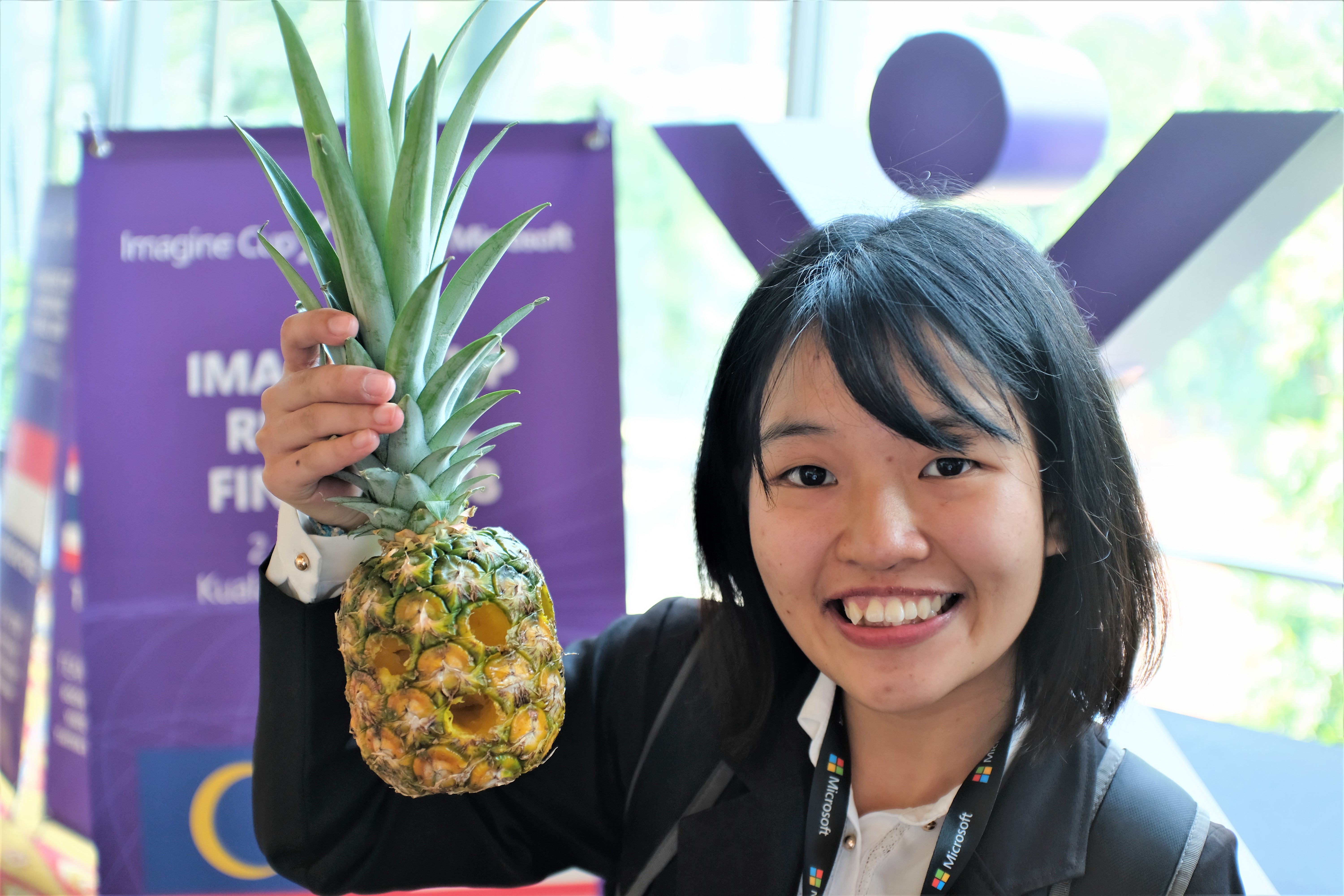
“The Imagine Cup is a journey that is on the road from now to what is next,” said Dave Miller, Commercial Software Engineering Lead, Microsoft Asia Pacific, who oversaw the Kuala Lumpur event. “It is about inspiration, it is about encouraging students to really think about what they can achieve and what the problems they can solve.
“It is just kind of mind-blowing to think that students at this level are tackling things around healthcare, agriculture, and efficiency in manufacturing or safety. These are problems that very mature adults have been wrestling with for years and years. If an 18 or a 20-year-old can apply themselves at this level it is really exciting to think about what innovations are ahead.”
Crucial to the success of innovation is practicality and, in many cases, that means financial viability. So, through the day of presentations, technical points and suggestions from the event’s seven-judge panel often gave way to detailed questioning about market research, customer focus, price points, and demand potential.
What is the business plan? Who are your partners? How are you going to make money?
“As judges, we have started to put a little more weight on the feasibility of a prototype, not just the technology involved, “said Michael Teoh Su Lim, who founded Thriving Talents – a Malaysian-based company that brings specialists from different disciplines together in teams.
“What is the business plan? Who are your partners? How are you going to make money? We have to encourage more students with an entrepreneurial drive and a mindset to also participate with tech students. We need people who can drive technology solutions and bring them to market.”
Michael, who competed in an Imagine Cup event in New Zealand where he was studying in 2008, admitted the questioning through the day sometimes bordered on being tough. “We are strict because we love these students, and we want to see their solutions really take off. So, we can’t go soft on them. We have to bring the real world to them and sometimes that means pointing out pitfalls in their work.”
Being hard-head and business-minded is just fine with Korea’s Team Classum, which created a specialized messaging app for college students who are too shy to ask questions of their professors in person in class. Chaerin Lee, who has taken on the mantle of team CEO as she completes a master’s program, believes they have the seeds of a business that will one day service millions of students around the world.
“We started off as students. We then became developers. Now we are entrepreneurs,” she declared with a smile.





